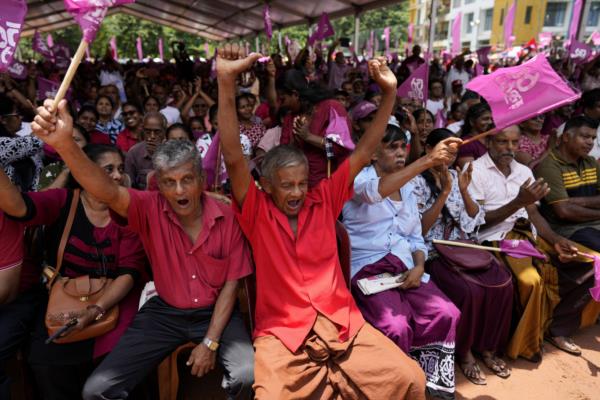
In 2024, voters around the world made their voices heard, leading to significant political changes in numerous countries. A common theme emerged as many incumbents faced defeat, signaling a widespread discontent among the electorate.
The year saw elections in approximately 70 countries, representing half of the global population. From India to the United States, Japan, France, and Britain, sitting governments were ousted as voters expressed frustration with economic disruptions and global instability.
According to experts, factors such as the lingering effects of the pandemic, high inflation due to geopolitical events like Russia's invasion of Ukraine, and mass displacements from conflicts in various regions contributed to the anti-incumbent sentiment.

































In several nations, long-standing ruling parties faced significant losses. South Africa witnessed a decline in support for the African National Congress, while India's Bharatiya Janata Party lost its parliamentary majority after a decade in power. Japan experienced political uncertainty as the Liberal Democratic Party suffered a major setback.
Furthermore, a shift towards right-wing and conservative ideologies was observed in various countries. Elections in the European Union highlighted the rise of conservative populists, while far-right parties made gains in France, Germany, and Austria.
Concerns about interference and disinformation also loomed large in 2024. Instances of covert meddling, particularly by Russia, Iran, and China, were reported in elections worldwide. Social media platforms like Meta took down multiple covert influence operations during the year.
As the year drew to a close, the political landscape remained turbulent in many regions. The U.S. presidential election resulted in Donald Trump's victory, raising questions about future policies. Countries like Venezuela, Mozambique, and South Korea grappled with political crises and unrest.
Looking ahead to 2025, several nations are set to face further political challenges. Germany and Canada are among the countries where incumbents are expected to encounter strong opposition in upcoming elections.
Despite the upheavals, global surveys indicate that support for democracy remains robust. However, there is a growing dissatisfaction among citizens with the functioning of their own democratic systems, highlighting the need for reforms and improvements.







